#thai pronouns
Text
This is the single best English language summary/overview of different, relatively common Thai pronouns I've found to date. The article was originally compiled by Duke Language School founder Bingo (Arthit Juyaso); you can also read the original three-part article at the internet archive here: [1] [2] [3]
#thai language#learning thai#ภาษาไทย#pronouns#grammar#linguistics#resource#language learning#languages#thai pronouns#my nonsense#q
61 notes
·
View notes
Text



Hello hello everyone!! Long time no see :) I've had this frans in my head for YEARS...I started the character design sheet last year (or was it two years ago?) but recently decided to get off my ass and finish it! So here's a product of hard, August work!
I'm kinda sad to see so many of my frans peers gone, but I hope they're doing well! While I probably won't be some huge online presence going forwards, I'm still excited to support the new gen while I can!
ANYWAYS!! This is my interpretation of HT frans! (og creator @/horrortalecomic) that takes place around a decade after Frisk's escape from the underground. Their life kinda goes downhill fast though, as the combined survivor's guilt, insane trauma after battling the horror known as Omega Flowey, and the sheer lack of a support system just kinda destroys them in that period of time. I won't dwell too much on that time period, though! After moving away from the og Mt. Ebbot city, Frisk gets their fresh start, regularly going to therapy, taking their PTSD meds, managing a pretty popular bookshop downtown, and living with their super supportive roomates!
...And then the monsters are freed, which does throw Frisk into a whirlwind, but after a year or two they feel pretty safe. No monsters seemed to have moved to their city (especially since the monster population is significantly smaller than it was before), so everything would be okay. Until that fateful day...

here they are! fyi frisk's skin, eye and hair colour (except for the blonde streaks) apply to all my frisks now!
I'll add some info here i couldn't fit in the tags!
-> They have a fun coworker dynamic where Frisk does NOT know he doesn't remember them so they're constantly walking on eggshells around him.
-> Frisk: Oh god he's after me he followed me for revenge but I deserve it oh god he's so mad at me
-> Sans: wow my manager is so kind and pretty and fun :)
-> Also sans is going to therapy, specifically to treat his memory problems,, so we don't know how long his positive view of Frisk will last...
#undertale#frans#frisk x sans#horrortale#my art#undertale au#HTyabadoo#sans#frisk#also yeah all of my frisk's are enby#they don't care much ab pronouns tho!#also they are all thai now <3#i wanted to give frisk good style but they're kinda adam sandler core :( sorry guys#dw they can still dress up nice dw!#also YES they have a skeleton tattoo on their right hand#they also constantly wear the locket they got from the underground under their shirt#also because this is MY horrortale AU i decree that Omega Flowey found a way to bring back Asgore's soul with his super cool powers#And Frisk used his soul (as well as the other human souls i suppose) to cross the barrier#weird side effect! now frisk has kind of a part of asgore in their soul#and can kinda see him sometimes#he's kinda their dad atp#will elaborate further maybe#sans is just kinda sans but he's a bit more quiet#still likes to make jokes#but he's a bit overwhelmed with living on the surface#so he's not like murderous#nor is he extremely sad#he's just pretty tired#also he hides his cracked skull with hats#while he's trying to find some sciency job and figuring out qualifications he applies to this bookstore
372 notes
·
View notes
Text
I've said it before and I'll say it again, Man Suang is a movie to watch multiple times to unpack all the lies and twists and unreliable narratives, to appreciate the performances and choices that each actor makes to stay true to their character among such a big ensemble cast.
Even then, there are still nuances to catch with every rewatch (trust me, I'm on my fifth).
The lackluster English subtitle (partly due to the translator's negligence, but mostly due to the subtlety being lost in translation) certainly doesn't do the dialogues and the storyline justice.
So I think some of us, especially those from Western cultures, could do to sit down and contemplate a movie so rooted in a specific culture before sharing, frankly, insensible opinions on it.
#mansuang#man suang#I am not Thai#and I will not pretend to understand everything there is to this movie#but I do come from a Southeast Asian country who shares so much#culture and language and beliefs with Thailand (they're literally next to each other on the map)#I was amazed how the Vietnamese subtitle#retains so much nuances between the formal pronouns and deeper contexts#(sorry to the English speaking fandom)#and I did my research before blabbering about it and exposing my own ignorance lol#mo's unfiltered thoughts
84 notes
·
View notes
Text
Lots of brilliant, thoughtful, funny posts out there about today's BMF episode so I just wanna jump in with some Thai!
Disclaimer: I'm still learning but want to share my love for Thai more! So feel free to correct me or expand on anything 🙏

What Pisaeng says here is that he wants them to stop using the pronouns กู (guu) / มึง (mueng) that they have both been using with each other so far.
From my experience watching Thai series, they're most common in male friendships but Not and Kwan use them with each other as well in this show!
In most school and university settings, you'll hear it between guys all the time but they're actually quite rude. You might see parents in Thai shows scold their kids for using them. Here's Punn from Be Mine Superstar using กู (guu) / มึง (mueng) while he's fighting with his little brother in front of their mom and immediately-
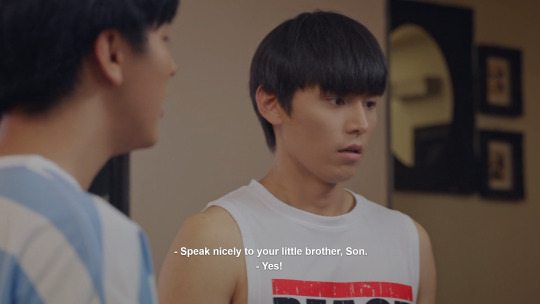
You might see someone intentionally switch to these pronouns in anger, like Payu in Love in the Air when Stop spits on his bike. He repeats his sentence, just switches out the polite 2nd person pronoun คุณ (khun) for มึง (mueng).
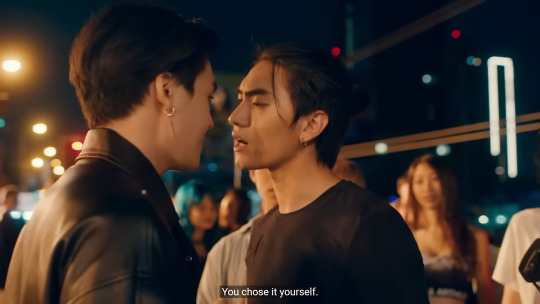

Between friends they express closeness and there's a long list of Thai BL couples who start as friends or school mates and thus continue to use them after they start dating. But there's also lots who decide to change how they speak to each other.
A compromise I see a lot is foregoing pronouns and using names (yes, you can refer to yourself and others by name in Thai, it gives a bit of an intimate or cute feeling though). Like super sweet Khabkluen and Daonuea from Star in My Mind (here Our Skyy 2) who call themselves and each other by Kluen and Dao and also use the polite ending particle ครับ (khab).

Now where the hell am I going with all of this?
After Pisaeng brings up the pronoun thing and Kawi goes "Like what?", I was expecting the option Names. But then Pisaeng pulls a sly happy face and I adjust to expecting เธอ (ter) maybe?? considering its frequent use in (love) songs and in some recent memes such as โอ้เธอหวานเจี๊ยบ (Oh ter! Waan jiab! = Oh you! SO sweet!) - if you at all follow GeminiFourth, you have certainly heard or read it before lol
What Pisaeng actually says though is the epitome of lover-cutespeak:
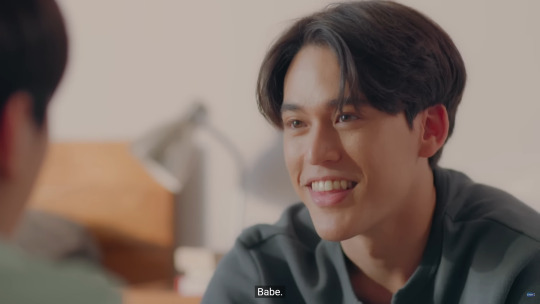
เตง (dtaeng), a version/shortening of ตัวเอง (dtua-eeng) which originally means 'oneself', and is mostly used along with the 1st person pronoun เค้า (kao), which itself is a version of a 3rd person pronoun. Confused? The idea here seems to be a Call me by your name/I am You, You are Me type of deal.
The only couple I can remember off the top of my head who actually uses them is Liu and See-ew in The Warp Effect.
Moving on though! Kawi expectedly and hilariously shoots that down and:

...his 'you' here is มึง (mueng) again, to Pisaeng's disappointment lol
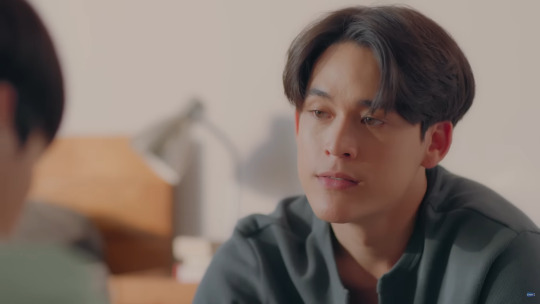
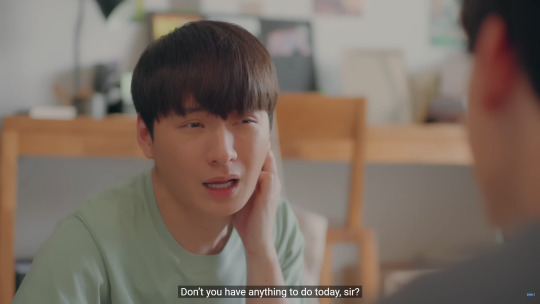

So Kawi repeats his question, using the polite 2nd person pronoun คุณ (khun) and the polite ending particle ครับ (khab), that he intentionally pronounces sweetly by elongating the vowel. Pisaeng responds by using the polite male 1st person pronoun ผม (pom) that works in lots of situations.
Maybe it's that I've been conditioned by too many university settings in Thai BL but I somehow didn't expect these friends-to-lovers university students to go with this choice (P'Waa managing to surprise me again). It reads as mature in a way? Like intentionally being not just polite but formal. It's a thing you might hear from parent characters/spouses but also just normal working adults, like Tan and Bun in Manner of Death. They continuously work towards building a long-lasting relationship while the show keeps subverting expected BL tropes left and right!
Throughout the rest of this episode, they omit pronouns where possible but Pisaeng starts using them repeatedly during dinner at the restaurant and in the preview they both use ผม (pom) / คุณ (khun) comfortably.
After many lines of omitted pronouns during the amusement park date, Pisaeng makes it a point to use ผม (pom) / คุณ (khun) right here, by the way:
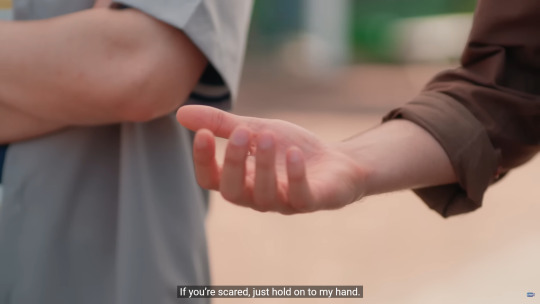
#be my favorite the series#be my favorite#thai bl#thai bl drama#krist perawat#fluke gawin#gawin caskey#local woman harps on about linguistics#i don't know that anyone else is as interested in the intricacies of fictional people's pronoun choices but here i am anyway lol
191 notes
·
View notes
Text
If you’re reading a fic in English about Thai characters, how do you feel about Thai words being part of it? For instance if I’m writing a fic and characters changing their pronoun usage is significant to the plot/characters, should it be included in the fic? (Ex: “I’m so tired, mom,” she said, accidentally slipping into calling herself noo, as if she was a little girl again).
#original#genuinely want to know because I do think about what pronouns characters are using in Thai as I write in English#thai bl
15 notes
·
View notes
Text
"I'm starting to like it now" my guy, my dude, only an episode ago you were gonna threaten it with a gun
#IT'S BEEN LIKE 13 MINUTES OF EPISODE SINCE MY MAN MY SON TAKE YOUR TIME#a boy cries into your arms ONCE (1x) and suddenly you like maths??#oh he's down baaaaaaad#dangerous romance#dr ep3#adrm#(i like how in thai there's even more of a clearer double meaning bc he doesn't use any pronouns dkjfjgf)
36 notes
·
View notes
Text
supporting the "vegas and pete get a cat post canon" agenda not just because it's adorable generally
but also for the very specifically hilarious mental image of vegas sometimes saying something to the cat and pete thinking he was talking to him. it's like
vegas, to the cat: hey baby, aren't you looking gorgeous
pete, slightly distracted: thanks vegas
#the main clue is that if vegas is using cat language it's the cat and if it's dog language it's pete#pete would if he thought about it advocate for a female cat so the pronouns are different too#although. how gendered are thai pronouns even#anyway you're welcome#kinnporsche the series#vegaspete#vegas theerapanyakul#pete saengtham#i have some GROCERIES TO SHOP
170 notes
·
View notes
Text
Maybe this is because I'm sleep deprived so this post may make no sense but I wonder if gender works differently on the Spiral than it does on earth. Like I wonder if the type of magic you have can influence your sense of identity in any way whether an AFAB girly-girl wizard tries on the 'he/him' pronouns on like a new pair of casual pants on Tuesdays or if something entirely new comes up and it just feels comfy and correct. I once saw a post where it headcanons Dasein to be mirrorgender and I think about that post everyday. Every single FUCKING. Day,
#brought to you by someone who's gender escapes from my jam jar every night to run into oncoming traffic#i like to think there's a gender or genders that's associated with godhood. like imagine specific genders for spider and raven and bartleby#its my personal headcanon that wizards sometimes base their course of study on what magic they feel like#whther they switch primary schools altogether or they just have it as a secondary course of study#like a thaumaturge that feels like a theuragist on some days so they take up Life magic as well as ice#am i trans? i dont fucking know i want to kwep it thay way. let me be unknown#reminder that dyvim's VA is he/any pronouns. we won. we have he/they/she/any dyvim#WAITWAIT imagine if also with magic you can have more than one gender like primary and secondary#what would malorns second gender be. would it be magic based#somebody stop me before i make every single wizard101 character queer in some way#wizard101#w101#wiz101#text posts
12 notes
·
View notes
Text
Asian Honorifics & BL - a quick & dirty guide, with examples
You ready for another one of my long broad brush linguistics in BL posts? (As always check the comments for people better than me correcting or adding content. Also I will be updating this post as long as Tumblr lets me fiddle with it.)
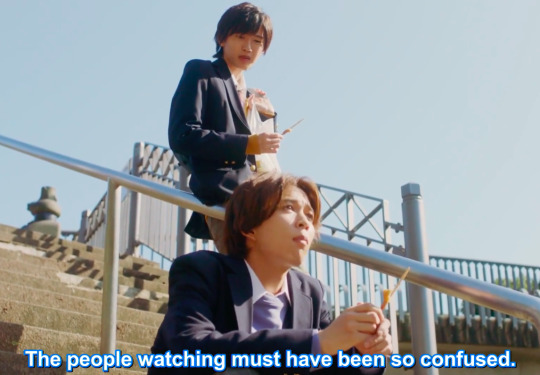
Codicil: I’m a dilettante who loves the cultural side of linguistics, and loves to help people understand BL better via language. I attempt to explain things using very simplistic terms and an anthropological approach, I am aware that it’s a lot more complicated. But I’m doing my best.
Codicil 2: This is meant to help BL watchers, not to guide tourists who in intend to travel to these countries.
Honorifics in General - the concept
Honorifics = a title or word implying or expressing status, politeness, or respect.
Many Asian languages employ honorifics in a filial manner (distinguishing status along generational lines with regards to birth year, professional relationship, and parental state). Basically calling someone who is NOT an actual blood relation “older brother” (e.g. Korean hyung or oppa) or “younger sibling” (e.g. Thai nong), or auntie (see many Indian or Latin American cultures). These can also be a kind of endearment in romantic relationships.
The closest most westerns can think of this is that the honorific is used as a way to delineate an intimate relationship/friendship across an age gap, but its implications are not always intimacy. (Except when they very much are, see oppa.)
You may be familiar with a phrases like “we’re so close she’s like my sister” or “he’s like a brother to me.”
However, because most westerners exist in relationships to peers only under the broad umbrella term friend, we will only use “like my sister” or “basically my brother” when someone is particularly dear to us but not sexually.
In most Asian languages, honorifics are more codified. So there is a status conferred by age which dictates honorifics be used. They’re mandatory for communication. Intimacy levels between individuals CAN impact this, but are not the primary decider on what honorific is used under most circumstances. Position in society is.
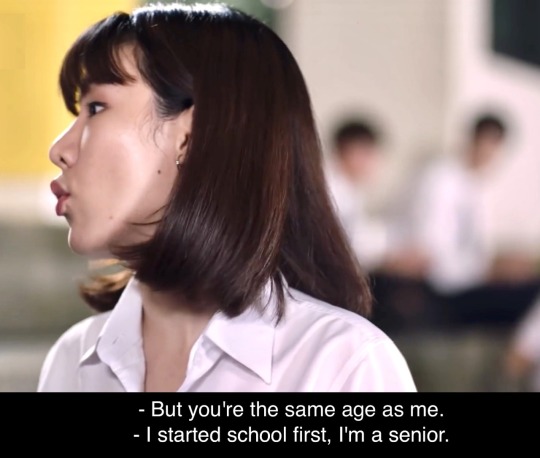
So these terms are often defined (or even translated) with sibling language. See early Thai BLs translate phi as bro, but that’s not strictly correct.
There are also often honorifics for larger age gaps (so more like auntie or uncle, delineating relationships like adult neighbors or a friend’s parents, or parents’ friends).
And there are honorifics for people in authority positions (like doctors, teachers, bosses) who are usually older (but not always). These honorifics are employed in the arenas of education, hobby activities (like ceramic classes or martial arts) and the workplace.
For many, informality of older to younger will be characterized by use of casual (or rude) language and lack of honorifics (from the older person to the younger one). So the older character will have one mode of address and way of talking, while the younger character exists in a more formal register when they are speaking back to someone older.
In other words, an older person can speak informally to a younger one, but not the reverse. (Yaja time excepted...)

Complexity of Honorifics as Elements of Language
Honorifics can function as titles:
Honorifics can be translated as/like titles. This is is the kind of thing we are most familiar with: Mister, Mrs, Mz, Miss, Master, Mistress, Sir, Madam, Ma’am are all, technically, honorifics. So are certain forms of address and royal titles, “The honorable” for example. Anything you might put in front of a name to add formality in English probubly qualifies as an honorific.
Honorifics can function as pronouns:
Or modes of address. For example the title boss, in English can also be used to call or refer to someone directly. “Hi, boss!” or “my boss” or “the boss says.” Honorifics serve the same function. In this way they can become pronouns. You can, in Korean, just call someone “hyung” it acts as the you pronoun for direct address. And often they can also be used in the 3rd person. So my “hyung” did such and such. This is why hyung = brother in a lot of translations. Because English uses brother in much the same way, it can act as both a 2nd or 3rd person pronoun. (Rarely first, but that’s an issue with English, that our first person pronoun is so inflexible.)
In Thai you can refer to a friend as phi (you pronoun in direct address, or use it as a she/he/they pronoun in third person) or you may refer to yourself as phi (using it as an I pronoun). In other words, phi can entirely replace a person’s name in all linguistic uses.
He/She/They goes to the store = phi goes to the store (when talking about my older friend to someone else)
I go to the store = phi go to the store (when talking to a younger person about my own actions), and
you go to the store = phi go to the sore (when talking to an older friend about something they are going to do - direct address)
Honorifics are also suffixes:
In Korean and Japanese honorifics are also attached to names in the form of suffixes. See the Japanese section. (Also sometimes prefixes, argh.)
Honoring is also attached to particles:
In Thai, polite particles confer respect levels as well, which means they also contain within them certain aspects of status and honorifics. See the Thai section.
The best way to understand honorifics in BL is by example.
Ready?

Korean - Honorific titles: Hyung, Noona, Oppa & Beyond
I’m starting with Korean because it is the most spoken and understood by westerners these days. I can only address this as a layperson who watches too many Kdramas.
Korean names in brief:
In Korea names are said family name first (what we call surname or last name) and then given name second (what we would call first name). Usually the family name is single barreled or one syllable, but the given name is double barreled or two syllables. So: Chu Sang Woo = Chu (family name) Sang Woo (given name, always said together). This is why I will usually refer to BL characters by their first name as a combo, e.g. SangWoo. In formal address, however is would be Chu SangWoo-ssi. Usually the entire name is said (see comments). Even when JaeYoung is being rude he usually says “Chu SangWoo.”
Korean honorifics you’ll hear:
Hyung | hyeong 형 - is said by a younger male when addressing an older male. I will use the term Hyung Romances for BLs that feature a younger seme pursing and older uke because...
Noona | nuna 누나 - is said by a younger male when addressing an older female and is responsible for the accepted series category “Noona romances” which are dramas that feature a younger boy pursuing an older woman.
Oppa 오빠 - is said by a younger female when addressing an older male. Also used by girlfriends addressing their boyfriends, or wanna-be boyfriends. Under a romantic context oppa is considered somewhat cringe/cheesy/cutsie.
Unni | eonni 언니 - is said by a younger female when addressing an older female.
Sunbae | seonbae 선배 - is said by a younger person to an older person (gender neutral) and is more formal. It can be used in the workplace and it mostly about seniority and less familial.
Hoobae | hubae 후배 - is said to/of a younger person, either across a generational gap, or within a workspace environment, again this one is about seniority and less familial.*
Although an older person’s filial and social responsibility to a youngster is always in play.
In Kpop you’ll hear sunbae used a lot by younger (say 4th gen) groups when referring to older groups within the industry. Or when talking about Kpop idols who they don’t personally know (or are so big they’re nervous about any assumption of intimacy). On reality shows like Queendom or Kingdom it’s particularly telling. Some of the funniest moments of Kingdom Legendary Wars is any time Penal (an American from BTOB - an older v established group) tries to convince the youngsters, some of them 10 years his juniors, to use casual language (drop honorifics). The poor things get SO confused.
BL Deeper Meanings behind Hyung
Okay so the best show to watch for this one is Semantic Error.

SangWoo starts out calling JaeYoung sunbae and rarely goes less formal. Technically sunbae is polite, but also slightly insulting in a university narrative of this type. Let me try to explain. Because as they become more intimate, combative or not, friends or frenemies, SangWoo should switch to using hyung, but he pointedly does NOT.
JaeYoung, on the other hand, always uses extremely informal (to the point of rude) language with SangWoo. (Culturally, he allowed such informality as he is SangWoo’s senior both at university, and in age). But you can watch him get annoyed that SangWoo insists on sticking to sunbae, to the point where he demands SangWoo use hyung.
Then after that, anytime SangWoo does use hyung JaeYoung totally melts for it, because it was hard fought and won, and it means something powerful and significant is shifting in their intimacy as a result.

During the mutual kissing at the bar scene, Semantic Error drops yaja time on us. Yaja time is a sanctified reversal of honorifics that essentially allows for a younger person to speak their mind informally and without repercussions (or supposedly so). It’s a kind of way to flirt and tease, but also somewhat taboo and titillating as a game to play when tipsy. You get yaja time in bars/clubs sometimes, like happy hour. If you watch the final episode of Kpop reality show I-land you’ll see a real word example of yaja time in action amongst the contestants, it’s adorable and very funny.
Semantic Error uses yaja time as an opportunity for drunk SangWoo to finally talk about his real feelings, without the pressure of linguistic formality.
They also use it for JaeYoung to drop the sluttiest most flirtatious hyungs in the history of all hyunging. Seriously, the boy is dripping seduction with that one world. Why? Because HE CAN. He is making the formality itself a kind of kink.

You can watch these two on the promo circuit attempt yaja time and even though they have an easy brotherly relationship, you can still see how uncomfortable it makes Jae Chan in particular.
Other honorific play in Semantic Error:
The girl who is interested in dating SangWoo calls him oppa, and ALSO requests to use a nickname+oppa with him (the nickname means lettuce). That is pretty blatant flirting. But note she specifically asks if she is allowed to do so?
Later when JaeYoung confronts her and stakes his claim, notice the thing he really wants corrected is her language with SangWoo? He wants her to go all the way beyond sunbae to formality by using the honorific suffix 씨 (ssi). But there’s also more lettuce wordplay here (I think) because he isn’t insisting she use SangWoo’s full name.
“You should call him Chu-ssi” which is translated into English as “Mr Chu.”

A word on oppa and queerness.
Because the implication is that the person saying oppa is female, you will rarely hear boys use this term for their boyfriends (even if they are out gay, unless they are femme and/or cultivating the association for a very specific and culturally subversive of kinky reason).
Exception: non native speakers who are happy to fart around with us and the Korean social structure. So early on, NCT’s (Kpop monster group) Mark (Canadian) would refer to Yuta (Japanese) as oppa. I’m not gonna unpack their relationship, but trust me when I say, no native Korean idol would have ever done this, not right now in Korea’s current social state. Well... maybe Holland but that’s a whole other discussion.
To complicate matters Korean also uses honorific suffixes, but I’m not gonna go into them here. (Read more about Korean honorifics.)
Instead I’m gonna use Japanese to talk honorific suffixes. Ready?
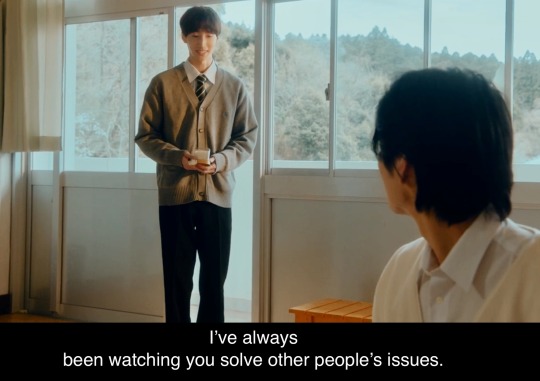
Japanese - Names & Honorifics: suffixes & titles
Like Korean, Japanese uses both suffixes and title honorifics. But I find the suffixes much easier to hear in Japanese than Korean, probubly because I’ve more experience with the language.
Note: As a foreigner in Japan I’ve alway found it best/easiest to refer to someone using surname-san.
Japanese names in brief:
Names are said family name first and then given name. But actually, given names are rarely, if ever, said AT ALL (after an initial introduction).
In BL dramas almost all character’s names and everyday use name will be the family name. (Children are different, but not many of those in JBL.) Teachers may refer to their students by given name-kun.
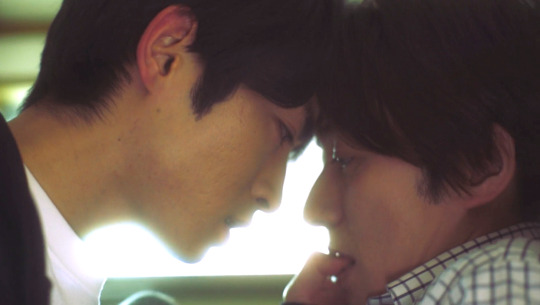
So in Old Fashion Cupcake Togawa is his family name (not given name). Nozue (also a surname) who is both older and Togawa’s boss, refers to Togawa simply as Togawa, with no honorifics, probubly because they are both adult characters and have been coworkers for so long, Togawa-kun would be... odd.
Togawa on the other hand, ALWAYS refers to Nozue as Nozue-san. Even in times of EXTREME intimacy the honorific -san is ALWAYS used.
We have no idea what the given names are for these characters because we never got to that point of intimacy in their relationship. In Japanese romances the given name is usually the ultimate intimacy and is not exchanged until well into a relationship, sometimes after sex or even after marriage. You can watch the delicate maneuvering around this aspect of intimacy in the kinky het drama Sweat & Soap (it’s not BL, but I still love it, on Viki.)
Japanese Suffixes you hear the most in BL:
-chan = is intimate and cute for children, or amongst female friends, or female family/intimates (like your grandma)
-kun = is for respected juniors, younger or junior co-workers, or young boys, and amongst friends
-san = is formal/polite and for general use, amongst friends, equals, strangers, and acquaintances
The best BL to watch to hear all three of these in constant use is Minato’s Laundromat.

Shin always calls Minato, Minato-san and gets very annoyed when anyone doesn’t do this who should (he want’s his man properly respected). Note that he puts Minato-san into his phone as Akira, tho... daring boy.
Asuka calls Minato: Akira-san, which he shouldn’t as a kid a generation younger than Minato. He gets away with it because he and Minato are from the same neighborhood and have similar open, friendly natures.
Minato, on the other hand, struggles with what to call Shin. Technically he should use Katsuki-kun or even Katsuki-chan (which is what he uses on Shin’s sister). Which is Shin’s surname + the suffix for a junior. But Minato is a causal person, so he never bothered with a suffix even at first. Now, informal language is fine from an older person to a younger one, if they have the right personality. But under BL circumstances, Minato’s lack of honorifics kind of gave Shin license to flirt. The moment Minato asked if he could use the nickname Shin he was a goner.
As Shin becomes more aggressive in his pursuit, Minato hops desperately between different suffixes to try to control the situation:
Shin (informal and friendly),
Shin-chan (diminutive, under this context = somewhat demeaning, considering what Shin wants from him), Minato is intentionally lowering Shin’s status and emphasizing his youth when he applies -chan,
Shin-kun (when he thinks Shin is mad at him, or in public, or when he is annoyed and wants to add formality and distance)
I talk quite a bit about this in my squee watch of this series.
Putting someone who should be (or is usually) address by one combo of name (first or last) + suffix into another, by changing either the name of the suffix or both, always has narrative significance for character development or plot or both in Japanese romances. Which is why you get more from the story if you train your ear to listen for these.

In the picture above, Takara is using -san for sarcasm and to gently chide Amagi. Usually he just uses Amagi with no honorific (they are the same age, and he is a curt characters) or Amagi-kun in public of for call/response address. He has moved to a higher level of formality for emphasis and to make a point in this scene. Communicating properly and avoiding conflict is a hallmark of his character, also (as the seme) he wants to control Amagi. This is all wrapped up in that personality and attitude. He is being teasing and sarcastic, but he is also stressing that this dialogue is important to him.
Read more on Japanese honorific suffixes here.
Japanese honorific titles you hear the most in BL:
Senpai (先輩、せんぱい) - senior colleague or classmate, roughly equivalent to the Korean sunbae or Thai phi
Sensei (先生、せんせい) - refers to teachers as well as people who are experts in their respective fields, like doctors, artists, professors, martial arts instructors, or lawyers
The best BL to watch for use of honorific titles in Japanese is... bet you thought I wasn’t gonna manage to shoehorn it in.... Seven Days!
*insert wild cheering*
Sereyo (younger) seems to relish and very much enjoy and flirt by using the honorific senpai with Yuzuru. It’s hard to explain, but the way Sereyo says "senpai” whenever they meet is very very... cute.
You can hear these characters use sensei when in archery practice. And you can hear use of some family suffixes and honorifics since we follow both characters back to their respective homes.

Sereyo calls Yuzuru, Yuzuru-san, which is Yuzuru’s GIVEN NAME + the honorific. This is unexpected because Yuzuru is his senior. He should call him by his surname + honorific: Shino-san.
But Sereyo has an issue, which is that Yuzuru has the same last name as his ex-girlfriend, who was also older. So in his previous relationship, Sereyo called his lover: Shino-san, and he doesn’t want to use the same exact name with his new lover, Yuzuru. So despite Yuzuru being his senior, he asks to use Yuzuru’s first name as a mode of address. Yuzuru being the kind of casual blunt personality he is, doesn’t mind the inherent informality and permits this right away.
More on Japanese honorifics here.
Mandarin Chinese Honorifics

Ho boy am I not going to climb into this one. But I will point out that to confuse matters many Chinese honorifics are actually also blood relation titles - 哥 ge (older brother) 弟 di (younger brother) - (like phi/nong, par/ar, hia/jay in Thai). In other words, the honorific actually is both brother (honorable title) and brother (actual word) AND will be applied to cousins. As in: the word for cousin is ALSO the same word as brother.
In Thai to clear up this relationship a character will often have to state it blatantly: "my real actual older bother, by blood, and not an older male friend” (since phi means both) and not a lover. See this grappled with as a jealously plot point in Star in My Mind.
But in some Chinese BLs they will also have to explain and distinguish actual blood relationships as different between cousins and siblings. You can watch Addicted deal with these nuances.
It should be noted for the BL crowd that Mainland Mandarin and Taiwanese Mandarin are ALSO different. So there are language nuances to Taiwanese BL that do not exist in Mainland BL (when it was around) and vice versa. And because Taiwan recognizes equal rights, there is also a whole adapted Chinese linguistic set around queerness.
I’m mentioning Chinese in this post mainly because it will come into play with Thai honorifics: hia & jie/jay 姐. Personally I struggle to even distinguish names let alone honorifics, I find Mandarin a particularly difficult language.
Thai - Honorifics, Pronouns, Particles & beyond phi/nong

I have quite a bit on Thai honorifics and their complexity plus how it relates to BL.
Thai Honorifics Between Ages in BL and real life
More on Thai Linguistic Registers - Particles & Honorifics
Thai Pronouns & Honorifics when Seme/Uke is Flipped
Sarcastic use of honorifics & polite particles in Thai
Linguistic Fun In Thai BL - couples
The Nu Diminutive in Thai
Touch & Daisy in Secret Crush On You - Queer Coded Language and 3rd Gender Identity
The most important thing to know, and how it’s different from Korean, is that phi & nong are gender neutral.
Also honorifics and politeness in Thai plays into both pronoun use and polite particles. Thailand does not have honorific suffixes like Japan or Korea, instead particles (which are kind of like spoken punctuation) come into play.
It’s complicated, in that there are a lots of ways to indicate relationships in Thai. But less complicated in that, at heart, gender doesn’t impact it as much as in Korean or Vietnamese. Instead, like Japanese’s -san, you can default to formal register by remembering to use khun (+ polite particles).
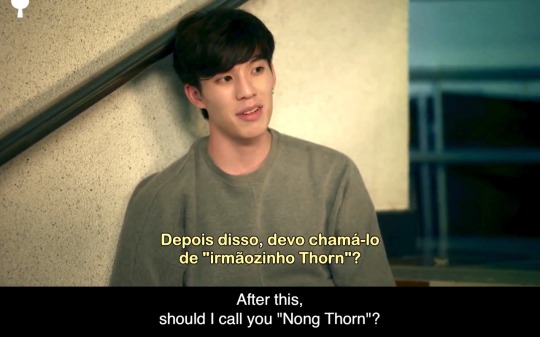
Loosely?
Phi = hyung, noona, unni, oppa, sunbae, or senpai, and its gender neutral.
Nong = hoobae or -kun or -chan, but is rarely used in direct address. Instead, informality in Thai is characterized by use of casual (or rude) language and lack of honorifics (from the older person to the younger one) + rude or informal particles. Nong is also gender neutral and can be used as you pronoun (rarely as I), or as a third person pronoun to refer to pets, or as a diminutive attached to a name, it’s... complicated.
Actually episode 10 of Love Mechanics plays with this. Vee whispers in Mark’s ear the equivalent to “Phi’Vee loves cute nong Masa.” Masa is Mark’s given name and it is Japanese because Mark is half Japanese.
But then, to tease him, Vee lowers his voice (Japanese men speak from low in the chest) and says: Masa-kun. Kind of the Japanese rephrase of the above.
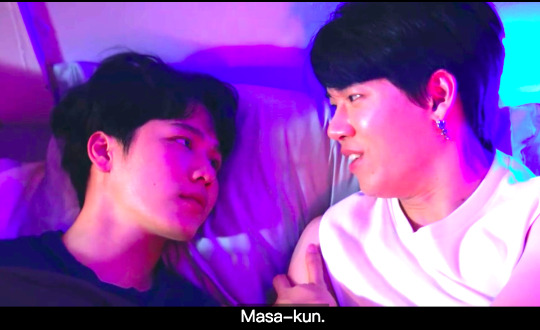
Hia = hyung/oppa (it may be used by a younger male or female but is only use on an older male) and specifically ties to Chinese heritage.
Jie/jay = noona/unni (it may be used by a younger male or female but is only use on an older female) and specifically ties Chinese heritage. It has also been coopted by the queer community and may be translated as “sis” under those circumstances. More about hia here.
Khun = -ssi or -san, and is a gender neutral formal address. It can be a title Khun + Name (first or last), an I/you pronoun, and also a proper name (ya, know, just for s&gs). Also in families that are more formal it is a mode of polite address for parents, Khun Maa for mother, Khun Paa for father.
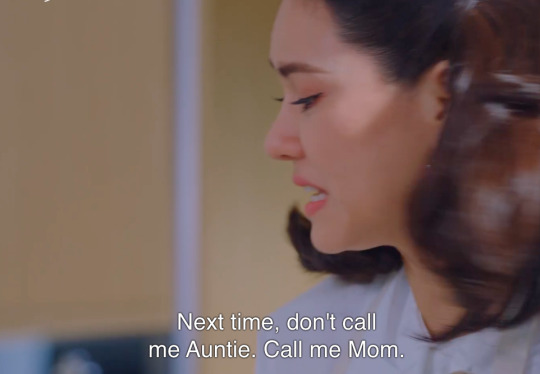
Vietnamese Honorifics
Vietnamese honorifics and modes of address are not my bailiwick but the amazing @squeakygeeky has been blogging a series around VBL linguistics and it’s queer struggles with pronouns because of bifurcation around gender.
Oh boy was this a lot. And I am sorry to @timelesstoothfairy who originally asked this question, I don’t think they realized what a can of worms it opened up.
Language, how is it SO MUCH FUN?
(source)
#BL language#bl linguistics#thai language#thai linguistics#asian honorifics#linguistic registers#honorifics#korean language#korean honorifics#japanese language#japanese honorifics#thai bl#japanese bl#korean bl#thai pronouns#thai particles#polite particles#Thai Honorifics#Thai Linguistic Registers#Linguistic Fun#chinese bl#addicted bl#addicted heroin#addicted the series#Star in My Mind#Japanese suffixes#seven days the series#Japanese honorific titles#Japanese honorific suffixes#ShinMinato
476 notes
·
View notes
Text
cw/tw - mention of bomb
individual stills under cut




#thai art real#splatoon#splatoon 2#agent 4#agent4#agent four#agentfour#mention of the squid sisters#wahoo i finished something!!#my agent 4 is named april & goes by she/they pronouns she got adopted by marie :3#april
16 notes
·
View notes
Text
Demigirl pride merch acquired and my parents are non the wiser; mission accomplished
#starry speaks#i bought a demigirl pride cat tail. my parents dont know what thr flag looks like nor that demigirl is even a thing so they have no idea#its pride stuff#basically i can get demigirl stuff as long as it doesn't look like a flag lmaoooo#had to pass up on a she/they pin bc my parents are here...wait i can just hide it from them......NEW MISSION: BUY PRONOUN PIN#update: i scowered the exhibition hall and couldnt find the place i saw the big she/they acrylic pins at#like. it was just gone#its no biggy anyways. i have a she/they pin back at my dorm that i got for free from a school event its just a bit hard to read#i found some she/they enamel pins but they were really tiny and i want one thay people can read from far away#o they know how to refer to me lol#sick n tired of being she/her halfway to hell ya know?
2 notes
·
View notes
Text
Lucky My Love EP.1
Disclaimer: not a native speaker, still learning, so feel free to correct me 🙏
Thai title: รักนี้มากับดวง /rak nee maa gap duuang/ = This love comes with/from the lucky stars.
Nabdao นับดาว /nap daao/ = counting stars
(played by Near Inthira เนียร์ /niia/ อินทิรา)
Vela เวฬา /waeh laa/ = time
(played by B Mine Jiratchaya บีมาย /bee maai/ จิรัชญา)
Our protagonist Nabdao is cute, silly, a daydreamer, and a romantic who wants to be swept off her feet!
The tarot spread, in case anyone else is actually as interested in it as I am lol:

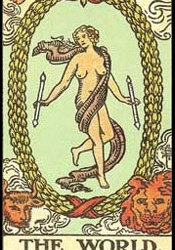


The World - success, achieving one's dreams, having a world of opportunities/options/etc. at one's feet
The Sun - positivity, happiness, illumination
Two of Cups - partnership, attraction, connection
Clarification on what the fortuneteller told her:


คนที่มองตาแล้วก็รู้ใจ /khon tee maawng dtaa laew gaw ruu jai/
= lit. a person who looks into [your] eyes and knows [your] mind/heart; Someone who understands you just by looking at you.
เกาหลีสุด ๆ เลยอ่ะ /gao lee sut sut loei a/
= That's so Korean! (as in Kdramas lmao)
Nabdao follows an auspicious color chart to attract good luck:
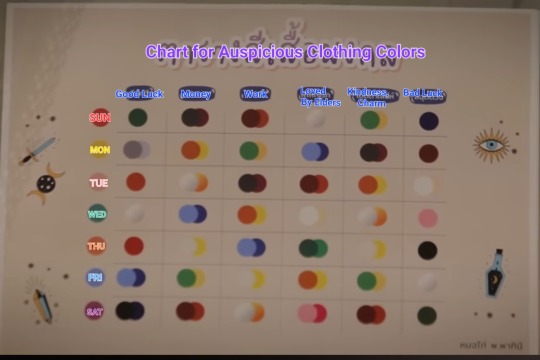
And she literally collects all the romcom tropes like they're pokemon lol, first trying to facilitate them herself and then by sheer happenstance or Vela's doing:

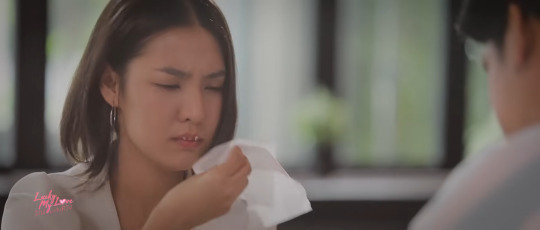
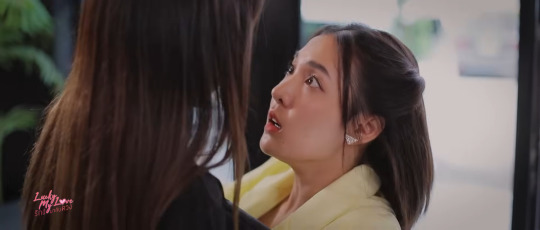

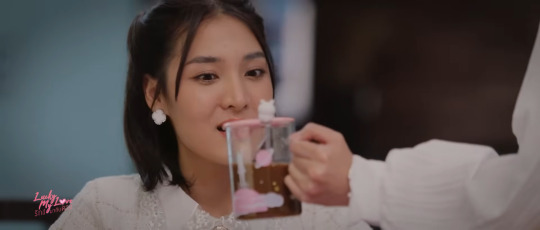

(the drink's Ovaltine btw)
#lucky my love#lucky my love the series#thai gl#near inthira#b mine jiratchaya#this show is super fluffy; the episodes are short; and it's free to watch on youtube so please support it if you like gl :>#local woman harps on about linguistics#not talking about pronoun choices yet bc there's not a lot to point out currently anyway but- Me not mentioning pronouns? Impossible!
23 notes
·
View notes
Photo




"I" wanna be with "YOU".
#ghost host ghost house#ghost host ghost house the series#tod techit#boy nattapon#pluemkevin#ghghedit#thai bl#thai drama#tdrama#bl series#bl drama#my edits.#pluemkevin win at the pronoun game tbh
321 notes
·
View notes
Text
i made a concept for kokuta -after- design
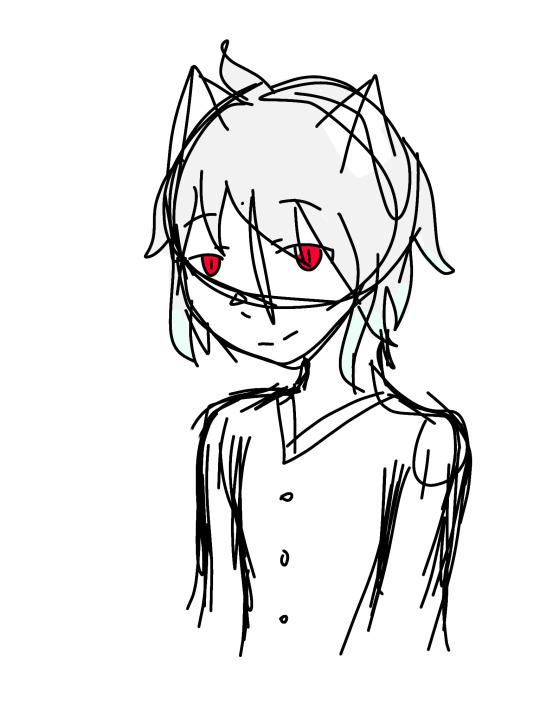
This version of kokuta is set in the future, where she fully finds out about her power, wich then both her eyes turn to snake eyes. She now permanently uses her ability to change her body (hence the white/ gray hair), so thats another reason for the double snake eyes. She supposed to symbolize what I would want for myself in the future. I guess she's my sona again lol
#Kokuta would go by any pronouns#I mostly refer to kokuta as “she” because thay makes things easier#Also i hate my gender with a burning passion sometimes#So i shouldn't put my baby kokuta through that 🥺🥺#I want her to be happy#And this is who she truly wants to be#kokuta#my sona#Sorry about the sudden sona posting#Thought yall deserved a break from my SnowDust/haiyuki and literally any kaito len duet crystal p has made brainrot
2 notes
·
View notes
Text
i did it guys, i turned my thai drama obsession into my bachelor thesis
#well not yet#i actually have to write it first#but i talked to my prof today and she officially approved so!!!!#i plan to write about the difficulties of translating thai into english when it comes to pronouns/particles/honorifics#and if i have enough word count left then i want to also ask the question of how the translation might be in german#(or how it might differ from the eng translation. how the translation strategies might differ)#and i'm gonna base my analysis on the eng subs of gmmtv series fkjfjfjrhd#my prof loved the idea she was super interested fkdjjdjd#she did also mention that she recently started learning indonesian so i guess she'll probably be curious about#whether there's anything in my thesis that'll be familiar from her indonesian studies hahaha#or at least there's a curiosity about asian cultures/languages that she has which will def help since she's overlooking + grading my thesis#i can't believe i'm ACTUALLY gonna analyze thai drama for uni. LOVE that for me#airenyah plappert
24 notes
·
View notes
Text
dot uses masc pronouns in japanese and there's also this so she's bigender to me
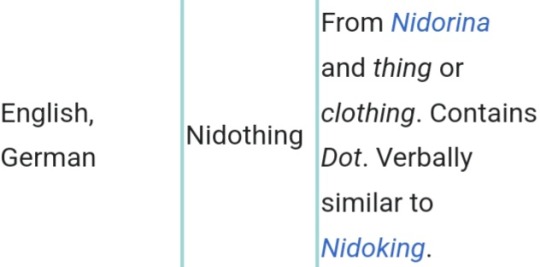
#bwark#wait iono is appearing soon and she's also a feminine presenting streamer thay uses masc pronouns#there's a connection to be made here
6 notes
·
View notes